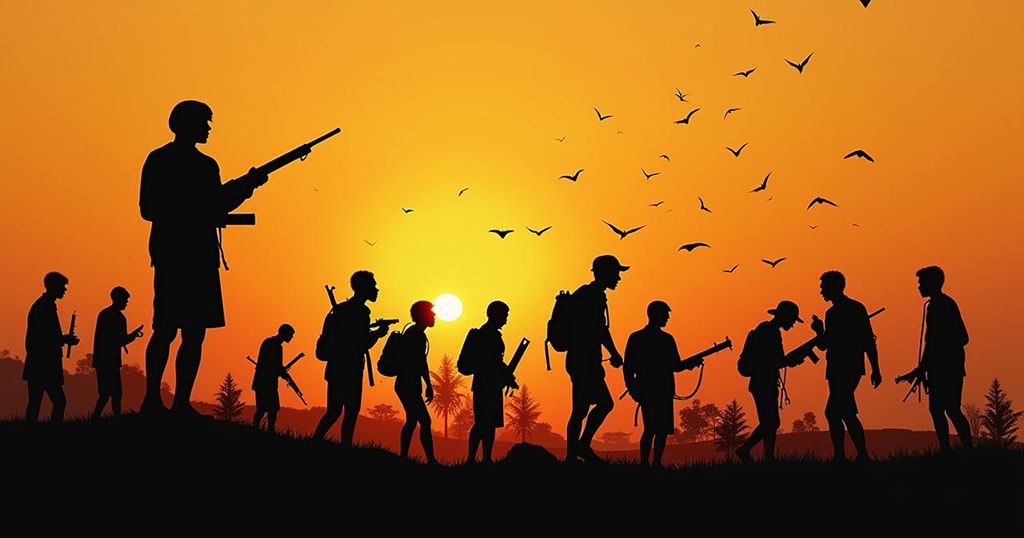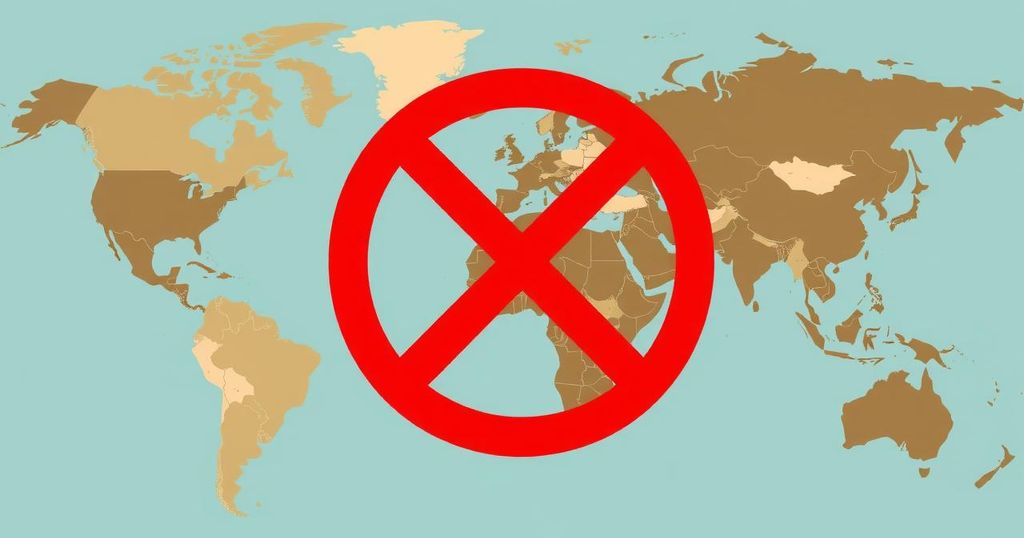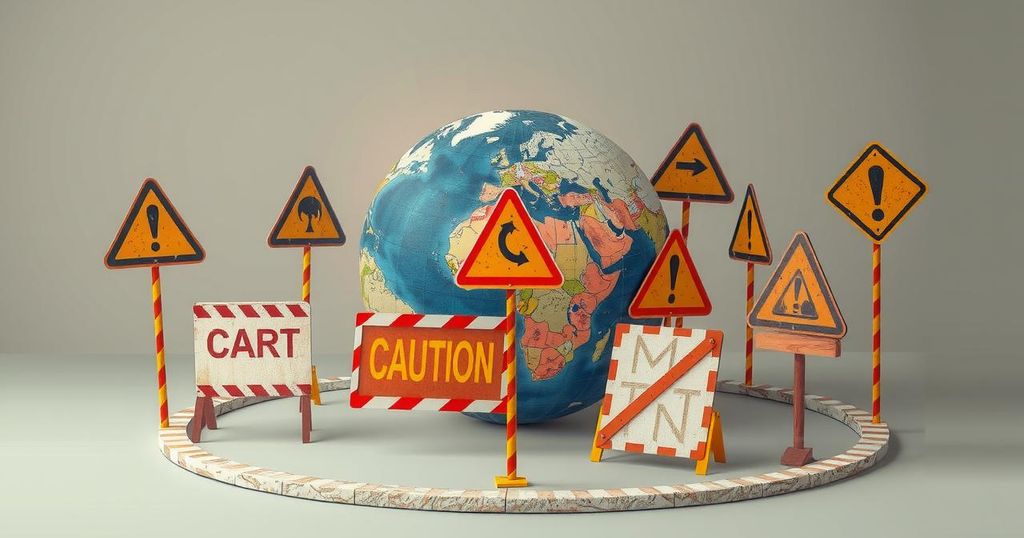Mozambique Approaches Crucial Elections Amid Insurgency and Hunger
Mozambique prepares for crucial elections amid a jihadist insurgency and drought-induced food shortages. With 17 million voters expected to participate, candidates emphasize addressing violence and poverty. The ruling party, Frelimo, aims to maintain its dominance despite recent scandals and electoral fraud allegations. The elections could signify a turning point for the nation as it confronts serious challenges to peace and development.
Mozambique is on the verge of critical elections set for October 2024, as the nation grapples with dual challenges: a persistent jihadist insurgency in the northern province of Cabo Delgado and widespread hunger exacerbated by severe drought conditions. Approximately 17 million voters will head to the polls to select a new president, 250 members of parliament, and provincial assembly representatives. The current president, Filipe Nyusi, is ineligible for re-election, creating a pivotal moment for the nation. During the six-week campaign, which culminated on October 6, candidates stressed the urgent need to address violence linked to insurgent groups associated with the Islamic State, which have terrorized communities since 2017. Approximately 1.3 million people have been displaced due to the violence, with many returning to devastated areas where essential infrastructure has been obliterated. The candidates concluded their campaigns in high-voting regions, pledging to tackle the challenges that have intensified due to the ongoing conflict. Daniel Chapo, the candidate from the ruling Front for the Liberation of Mozambique (Frelimo), vowed to restore peace and infrastructure in Cabo Delgado, affirming that “the first objective of governance is to work to end terrorism using all available means to return peace.” Competing candidate Lutero Simango, representing the Democratic Movement of Mozambique, focused his campaign on addressing healthcare deficiencies and alleviating poverty. Independent contender Venacio Mondlane claimed he could eradicate kidnappings and terrorism within a year of taking office. The elections are overshadowed by significant issues, such as high unemployment rates and the impact of El Niño-induced drought, which has left 1.3 million Mozambicans facing severe food shortages, according to the World Food Program. The ruling Frelimo party also faces scrutiny following corruption scandals, notably the tuna bond scandal that led to a financial crisis and significant international fallout. The Southern African Development Community dispatched a delegation of 52 election observers to ensure electoral integrity, following reports of electoral fraud in the previous local elections, where Frelimo dominated outcomes amidst allegations of vote-rigging. Political analysts express skepticism regarding a potential shift in power, citing the entrenched position of Frelimo and the challenging environment awaiting the incoming president amid ongoing conflict. The upcoming election will be a crucial indicator of Mozambique’s path forward, as the new leadership will be required to confront a complex array of issues that threaten national stability and development.
The situation in Mozambique is particularly dire, as the nation is experiencing a jihadist insurgency that began in the northern Cabo Delgado province in 2017, resulting in violence, displacement, and destruction of communities. In addition to the security crisis, Mozambique is facing extreme food insecurity due to drought conditions, which have exacerbated poverty levels and hunger among its population. The country has recently held local elections that were marred by allegations of fraud and corruption, setting the stage for a tense and scrutinized presidential election. The ruling party, Frelimo, has maintained power since 1975, leading to questions about the potential for change in a deeply entrenched political landscape. As Mozambicans prepare to vote once again, the challenges they face are intertwined with calls for accountability and effective governance, raising concerns about the electoral process and the ramifications of the outcomes on both security and humanitarian fronts.
The upcoming elections in Mozambique represent a critical juncture for the nation, highlighting pressing issues of security, governance, and humanitarian needs. Candidates must address the ongoing insurgency and deteriorating living conditions in their platforms while confronting historical corruption within the ruling party. With the significant voter base and international observers in place, the election results could lead to transformative changes or reinforce the Frelimo party’s longstanding dominance amid a backdrop of challenges that the new leadership must confront.
Original Source: apnews.com




Post Comment